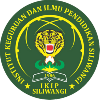USING WHATSAPP GROUP AS LANGUAGE LEARNING STRATEGY (LLS) TEACHING TOOL TO IMPROVE ACADEMIC WRITING PERFORMANCE OF EFL STUDENTS
Keywords:
Language Learning Strategies (LLS), Whatsapp, Writing Performance, Teaching Methods, EFL StudentsAbstract
This study aimed to examine the impact of Whatsapp-based instruction in using indirect Language Learning Strategies (LLS) on their academic writing performance. The participants were Indonesian 60 female and 52 male students aged 16 to 26. The current study was experimental in design, with quasi pre and post-tests for the experimental and control groups. There was one independent (experimental) variable and two dependent variables. The post-test treatment's means were all higher than the pre-test treatment due to the six indications. In other words, from the pre- to post-tests, all indicators increased on average. In accordance with current trends, Whatsapp can be employed as an LLS teaching tool.
References
Alias, A. A., Manan, N. A. A., Yusof, J., & Pandian, A. (2012). The use of Facebook as Language Learning Strategy (LLS) Training Tool on College Students’ LLS use and Academic Writing Performance. Procedia - Social and Behavioral Sciences, 67(November 2011), 36–48. https://doi.org/10.1016/j.sbspro.2012.11.305
Anderson, N, J. (2002). The Role of Metacognition i m Seesmd Lamguage.
Bremner, S. (1999). Language Learning Strategies and Language Proficiency: Investigating the Relationship in Hong Kong. The Canadian Modern Language Review, 55(4), 490–514. https://doi.org/10.3138/cmlr.55.4.490
Chamot, A. (2004). Issues in language learning strategy research and teaching. Electronic Journal of Foreign Language Teaching, 1(1), 14–26.
Chamot, A. U., O’Malley, J. M., Kupper, L., & Impink-Hernandez, M. V. (1987). A Study of Learning Strategies in Foreign Language Instruction. First Year Report. Interstate Research Associates, Rosslyn, VA: I. (ERIC Document Reproduction Service No. ED352824).
Chand, Z. A. (2014). Language learning strategy use and its impact on proficiency in academic writing of tertiary students. Procedia - Social and Behavioral Sciences, 118, 511–521. https://doi.org/10.1016/j.sbspro.2014.02.070
Ferris, D. (2016). Treatment of Error in Second Language Student Writing, Second Edition. In Treatment of Error in Second Language Student Writing, Second Edition (Vol. 54, Issue 2). Journal Of Second Language Writing. https://doi.org/10.3998/mpub.2173290
Ferris, D. R. (2001). Research Perspectives on English for Academic Purposes. In J. Flowerdew and M. Peacock (eds.), Research Perspectives on English for Academic Purposes (pp. 298–314). (Cambridge: Cambridge University Press).
Flowerdew, J., & Peacock, M. (2001). Research Perspectives on English for Academic Purposes. In Research Perspectives on English for Academic Purposes. Cambridge University Press. https://doi.org/10.1017/cbo9781139524766
Green, J. M., & Oxford, R. (1995). A Closer Look at Learning Strategies, L2 Proficiency, and Gender. TESOL Quarterly, 29(2), 261. https://doi.org/10.2307/3587625
Michael O’Malley, J. (1988). The cognitive academic language learning approach (Calla). Journal of Multilingual and Multicultural Development, 9(1–2), 43–60. https://doi.org/10.1080/01434632.1988.9994318
Narasuman, S. A. (2004). An Analysis of the Effects of Explicit Reading Strategies Instruction on the Comprehension Achievement and Metacognitive Knowledge of ESL Students.
O’ Malley, M., & Chamot, A. (1990). Lenguage learning strategies.
Oxford, R. (1994). Language Learning Strategies: An Update. ERIC Digest. ERIC/CLL, 1118 22nd Street, N.W., Washington, DC 20037.
Oxford, R. L. (1990). Language Learning Strategies: What Every Teacher Should Know. Issues in Applied Linguistics, 1(1). https://doi.org/10.5070/l411004984
Oxford, R. L. (2003). Language Learning Styles and Strategies : an Overview. Learning, 1–25.
Palermo, C., & Thomson, M. M. (2018). Teacher implementation of Self-Regulated Strategy Development with an automated writing evaluation system: Effects on the argumentative writing performance of middle school students. Contemporary Educational Psychology, 54(July), 255–270. https://doi.org/10.1016/j.cedpsych.2018.07.002
Raimes, A. (1983). Teaching echnique in English as a second language. 163.
Rajamoney, S. S. (2008). A Study On The Use Of Language Learning Strategies After Strategy Training Among Form Four Esl Students : A Case Study. 282.
Rubin, J. (1981). Study of Cognitive Processes in Second Language Learning1. Applied Linguistics, II(2), 117–131. https://doi.org/10.1093/APPLIN/II.2.117
Zamel, V. (1982). Writing: The Process of Discovering Meaning. Quarterly, 16(2), 195–209.
Downloads
Published
Issue
Section
License

This work is licensed under a Creative Commons Attribution-ShareAlike 4.0 International License.











